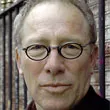Thomas Laqueur '67

Earlier this semester, Thomas Laqueur '67 delivers the Paul H. Beik Lecture in History, "Why Do We Care For the Dead?"
In the beginning there was the dead body: lifeless matter, soon to decay, from which all that was human had fled. Almost three thousand years ago Diogenes the Cynic told his students that when he died he wanted his corpse to be tossed over the wall for beasts to eat. He was gone; it did not matter to him.
This talk asks why we have refused his example and it answers the question in two connected registers, first anthropological and then historical. Our species lives with its dead, materially and imaginatively; caring for them is the sign of our emergence from the order of nature into culture. It is the primal expression of our consciousness of temporality.
The Dead make civilization on a grand and an intimate scale, everywhere and always but also in particular places, in particular times and in particular ways.
The talk moves to the level of historical explanation and offers brief answers to three questions. Where are the dead?: how did the dominant resting place of the dead—the churchyard—come into being during the middle ages and why did the modern cemetery largely supplanted it. Who are the dead?: how and why since the nineteenth century have we come to gather the names of the dead on great lists and memorials and conversely why is being buried without a name has become so disturbing. Finally, What are the dead?: how did technologically sophisticated cremation—the rendering of the dead into indistinguishable inorganic matter—begin as a modernist fantasy of stripping death of its history and why did the project ultimately fail. Even the ashes of the Shoah meant to obliterate its victims have been re-inscribed in culture.
Laqueur is the Helen Fawcett Distinguished Professor of History at the University of California, Berkeley. He writes about the cultural history of modern Europe and has published books on topics ranging from working class religion and education during the industrial revolution to the history of sexuality and the body. His new book The Work of the Dead: Oblivion and Civilization in the West will be published by Princeton University Press in 2015. Laqueur is a founding editor of the journal Representations and writes regularly for the London Review of Books, The Threepenny Review, and theTLS as well as for other journals.
Laqueur graduated from Swarthmore College with a B.A. with honors in history. He went on to receive a M.A. (1969) and Ph.D (1973) in history from Princeton University while also spending time at Nuffield College, Oxford.



